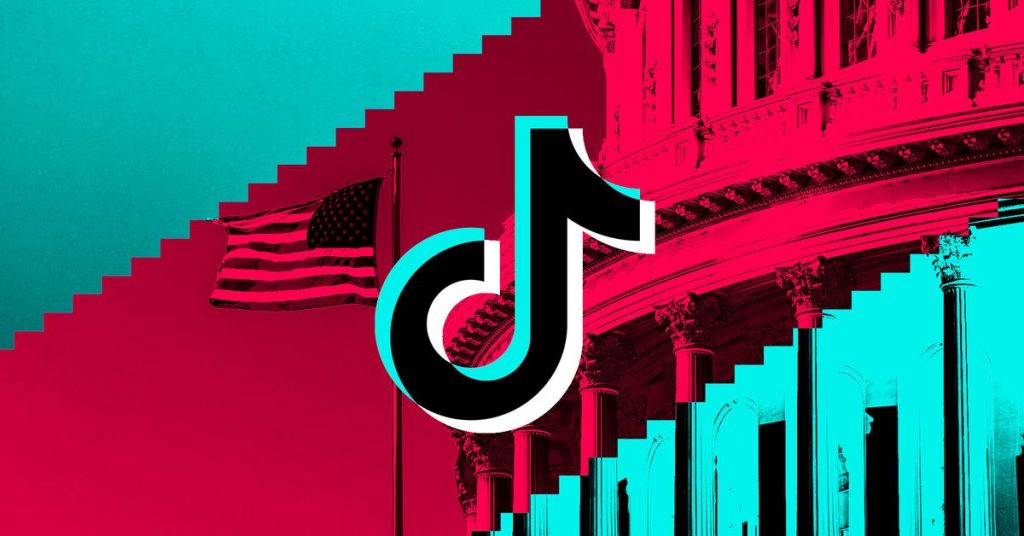The TikTok Dilemma: Navigating Political Campaigns in the Face of a Potential Ban
Presidential Campaigns Embrace TikTok Despite Controversy
As the 2024 presidential election approaches, candidates are grappling with the decision to utilize TikTok for their campaigns, even as the app faces potential restrictions in the United States. President Joe Biden, dressed casually in khaki slacks and a quarter zip, recently appeared in a video answering lighthearted questions about the Super Bowl, including a final query: “Trump or Biden?” With a smile, the president responded, “Are you kidding? Biden.”
Lawmakers Push for TikTok Divestment or Ban
The presidential reelection campaigns’ use of TikTok comes amid growing concerns over the app’s Chinese ownership. The House Foreign Affairs Committee recently approved a bill that could lead to TikTok’s removal from the U.S. unless it separates from its Chinese parent company within six months of the bill’s enactment. Rep. Jeff Jackson, known for his congressional insights on TikTok, faced backlash from his followers after voting in favor of the bill, with some accusing him of being swayed by money from the American Israel Public Affairs Committee (AIPAC).
Lessons from the Cambridge Analytica Scandal
Despite the controversy surrounding Facebook’s role in the Cambridge Analytica scandal, which revealed the unauthorized harvesting of user data for political purposes, campaigns continued to rely heavily on the platform for fundraising and messaging. Although Facebook temporarily banned political advertising after the 2020 election, it lifted the ban in time for the following election cycle. While some advertisers shifted their spending in the 2022 midterm elections, many cited reasons unrelated to the scandal, such as changes in iPhone privacy policies.
Weighing the Benefits and Risks of TikTok for Political Campaigns
Campaign strategists must consider various factors when deciding whether to use TikTok, including the app’s user demographics, the candidate’s existing audience, and the potential risks associated with the platform’s Chinese ownership. Incumbents may have an advantage in leveraging pre-existing TikTok audiences, while newcomers may struggle to build a following in time for Election Day. Additionally, there is a partisan divide in the incentives for using TikTok, with the app’s younger, more liberal user base potentially benefiting Democratic candidates more than their Republican counterparts.
The Importance of a Comprehensive Campaign Strategy
Despite TikTok’s vast reach and appeal to younger voters, it is not yet an indispensable tool for political campaigns, unlike platforms like Facebook and YouTube. TikTok’s prohibition on political advertising can make it less attractive to campaigns with limited resources, who often prefer to focus on proven methods for generating campaign funds and voter turnout. However, campaign veterans caution against leaving potential votes on the table by neglecting a large platform like TikTok. As Amy Kelleher, senior director at Bully Pulpit International, notes:
The signal it sends if you’re not [on TikTok] is bad, which is, you’re old, you’re out of touch.
Navigating the Hypocrisy of Campaigning on TikTok While Supporting Its Ban
Some politicians find themselves in the awkward position of using TikTok for their campaigns while simultaneously supporting measures to restrict or ban the app. However, as Bradley Tusk, CEO of Tusk Strategies, points out, the public’s low opinion of Congress and Washington allows politicians to navigate this hypocrisy without significant consequences. Ultimately, the decision to use TikTok as a campaign tool comes down to a cost-benefit analysis, weighing the potential risks against the opportunity to reach a large and engaged audience.

1 Comment
Politicians dancing their way into voters’ hearts – who would’ve thought?